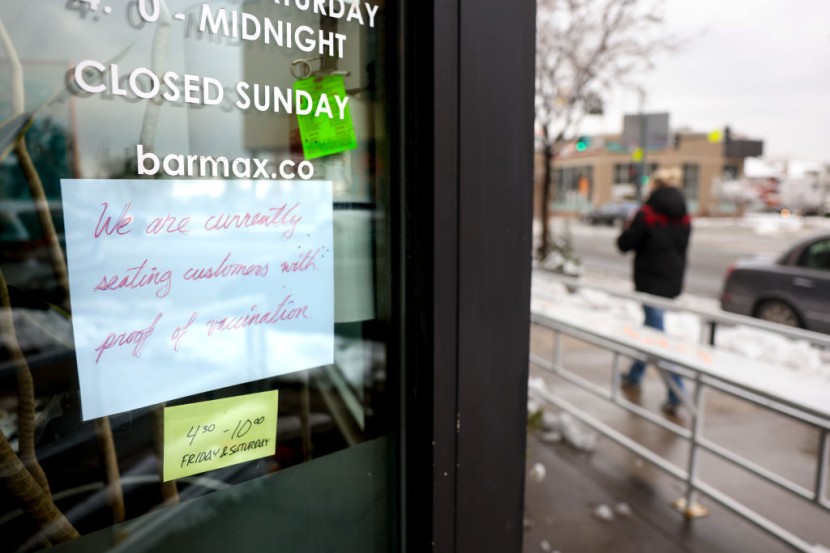
According to the Equal Employment Opportunity Commission (EEOC) federal agency, businesses can require their employees to be vaccinated against COVID-19 without breaching federal law. On the other hand, colleges and universities imply different requirements.
Companies can also provide incentives to employees to be vaccinated or produce proof of immunization "as long as the incentives are not coercive," according to the EEOC.
However, employers must offer reasonable accommodations for employees who refuse to get vaccinated due to a disability, religious beliefs, or pregnancy, per the latest EEOC guidance. Other federal, state, and local laws may also apply, said the agency.
Post online posts about violating rights on requiring vaccination are false claim
In a statement, EEOC Chair Charlotte A. Burrows said, "The new technical assistance provided today addresses frequently asked topics surrounding vaccinations in the work environment. The EEOC will continue to explain and update its COVID-19 technical assistance to ensure that the public receives clear, understandable, and useful information," as per USA Today.
Online posts circulating widely on Instagram this month claimed that a business asking for proof of vaccination or denying entry based on vaccination status is a "violation of your privacy and property rights" protected by federal law, citing excerpts from the Fourth Amendment and the 1964 Civil Rights Act.
The posters stated that the Fourth Amendment protects people against businesses asking about vaccines because it protects people's right to be secure in their persons, homes, papers, and effects against unwarranted searches and seizures. On the other hand, legal experts argue that the amendment only applies to government searches and seizures, not private organizations.
Before becoming available to the general public, all three vaccinations that have been approved for use in the United States underwent extensive clinical trials involving thousands of people. They were proven to be exceedingly safe and effective in all three trials.
However, this has not stopped arguments. Governor Ron DeSantis of Florida has made "vaccine passports" unlawful, prohibiting government entities from issuing vaccination certificates and companies from checking them as a condition of service, The Independent reported.
According to experts, the EEOC is confused regarding how aggressive vaccine demands from employers can be. Companies can provide incentives for employees to receive the vaccine, as per the Centers for Disease Control and Prevention (CDC), as long as the incentives are not so significant as to be coercive.
Some schools will require COVID-19 vaccinations for students
For the fall semester, hundreds of schools and institutions throughout the country are mandating students, faculty, and staff to get the COVID-19 vaccine. Several college students in the area are hoping to get back to normal.
Although the University of Louisville strongly encourages students, teachers, and staff to obtain the COVID-19 vaccine, it is not required to return to campus for the fall semester at this time. "We will strongly advise individuals to mask if they have not been vaccinated and to receive the vaccine. However, you know there will be a population of people who will never be able to get the vaccine due to an underlying health condition," said UofL Provost Lori Gonzalez, as per WAVE3 News via MSN.
At the University of Kentucky, it's the same. Students, faculty, and staff are strongly urged to obtain the vaccine for the fall semester, but it is not required. Sullivan University, Western Kentucky University, Spalding University, Kentucky State University, and Bellarmine University are all strongly recommending, but not enforcing, that people get the vaccine. Bellarmine claims they're still thinking about it. Others in Kentucky, such as Berea College and Simmons College, have made the COVID-19 vaccination mandatory for the fall semester.
Indiana University will be joining them on the opposite side of the river. Students, professors, and employees on all IU campuses will be required to return fully vaccinated next semester. Checking in on two other major Indiana universities: The University of Notre Dame requires all returning students to be vaccinated entirely against COVID-19 before returning to campus in the fall, while Purdue University has issued a strong recommendation that all Boilermakers obtain the immunization.
Related Article: COVID-19 Vaccines: US Has Millions of Unused Doses Despite Incentives While Rest of the World Clamors for Vaccines
@YouTube
© 2026 HNGN, All rights reserved. Do not reproduce without permission.








